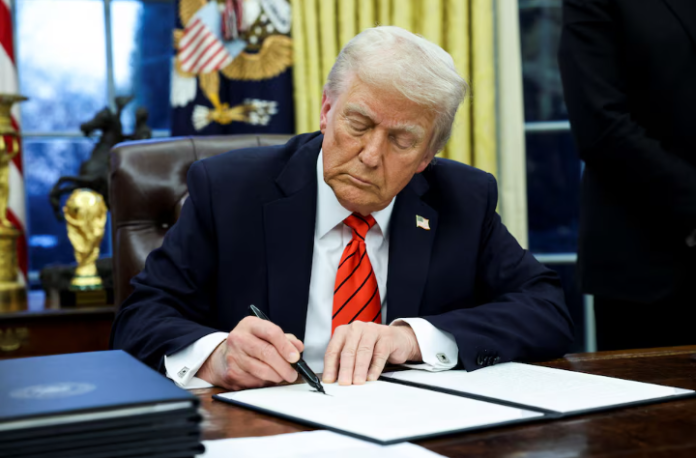The recent decision by U.S. President Donald Trump to freeze foreign aid has sent shockwaves through numerous human rights organizations monitoring China. These groups, heavily reliant on U.S. funding, have been forced to suspend operations, lay off staff, and scramble for alternative financial support. The funding halt comes at a critical time when human rights concerns in China are under intense international scrutiny.
Impact of the U.S. Aid Freeze on China-Focused NGOs
Dozens of non-governmental organizations (NGOs) dedicated to tracking dissent, labor rights, and political freedoms in China have been severely affected by the funding freeze. These organizations have played a crucial role in documenting President Xi Jinping’s sweeping crackdown on minorities, activists, and legal professionals.
According to Maya Wang, Associate China Director at Human Rights Watch (HRW), many of these organizations assumed that their China-focused programs would remain funded despite broader U.S.-China tensions. However, the sudden withdrawal of financial support has dealt a significant blow to global civil society.
One of the most affected groups is Freedom House, a U.S.-based organization that received approximately $80 million in U.S. government grants in 2024, constituting 88% of its total revenue.
Its China Dissent Monitor, a database that has tracked over 7,000 protests since 2022, has been forced to halt operations due to a lack of funding. This tool has been vital for journalists and researchers analyzing China’s growing suppression of protests amid economic challenges and rising youth unemployment.
The Growing Funding Crisis
The freeze has impacted numerous other China-focused organizations that rely on grants from U.S. agencies such as USAID. In 2024 alone, the U.S. pledged $10.7 million in foreign aid for China-related projects, with nearly half of it ($5.2 million) allocated to democracy, human rights, and governance initiatives.
Private foundations and corporate donors have largely avoided supporting these causes, fearing political backlash from Beijing. Meanwhile, other governments tend to fund strictly humanitarian efforts rather than politically sensitive programs.
The lack of funding transparency further complicates the situation. Many NGOs deliberately avoid disclosing their financial sources to prevent accusations from Beijing of being foreign agents. However, this secrecy also makes it harder for them to attract new donors in times of crisis.
Trump’s Stance and China’s Response
President Trump’s decision to halt U.S. government-funded aid globally for 90 days is part of a broader strategy to reduce federal spending and shrink government operations. He has openly criticized USAID, describing it as being run by “radical lunatics.”
While Trump has hinted that some funds could be reinstated after the freeze, there is no certainty on which programs might resume. This has sparked a desperate scramble among affected organizations to secure alternative funding.

China, on the other hand, has long accused the U.S. of using foreign aid as a tool to foment “color revolutions” by supporting civil society groups. Chinese state broadcaster CCTV recently aired a segment titled “USAID: Aid as a Pretext for Interference,” reinforcing Beijing’s stance that Washington uses financial aid as a political weapon.
Future of China’s Human Rights Monitoring Efforts
The funding crisis has forced organizations like China Labor Watch—which monitors abuses in Chinese factories—to furlough staff, with some employees on temporary visas now facing the threat of deportation. The group’s founder, Li Qiang, admitted that his overreliance on U.S. funding was a strategic mistake.
“We should have diversified our funding much earlier,” Li said. “Now, we are left scrambling to keep our projects alive.”
As many NGOs search for alternative funding sources, their ability to monitor human rights abuses in China remains uncertain. The lack of financial support could significantly weaken global efforts to hold China accountable for its actions.
The long-term consequences of this aid freeze will likely unfold in the coming months. Without urgent financial intervention, human rights documentation in China may suffer an irreversible setback.



